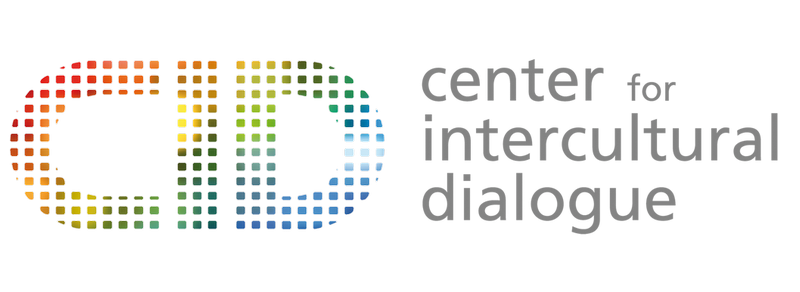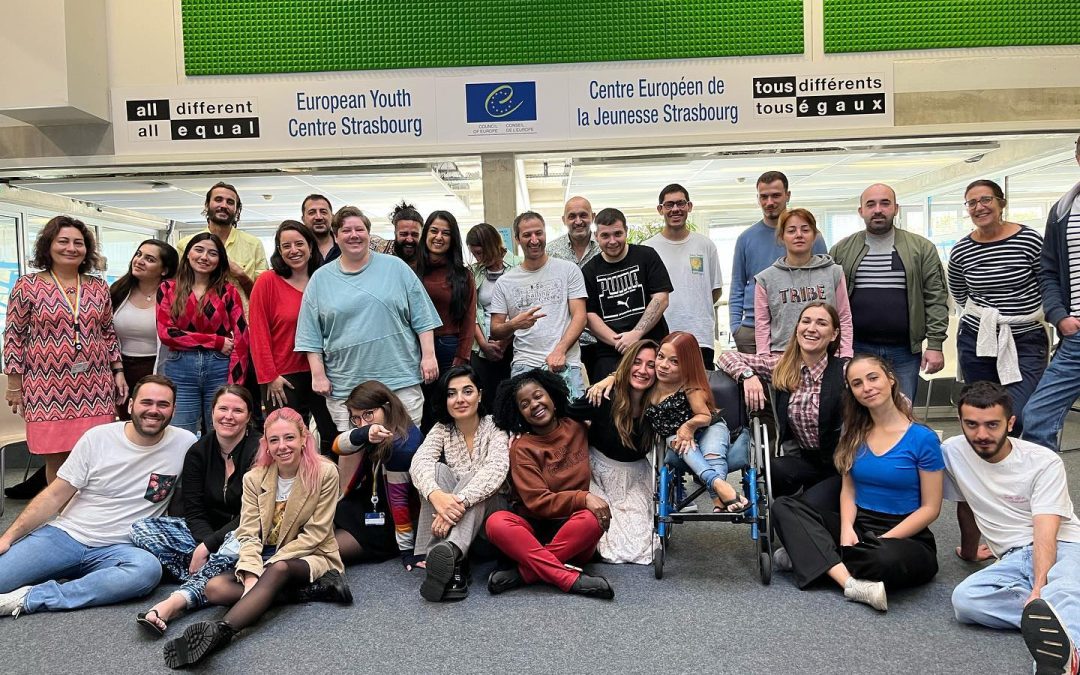The 4th edition of Enter! Long-term training courses (LTTCs) for youth workers came to an end with their evaluation seminar in Strasbourg.
To those who are not familiar with the Enter! project, the youth sector of the Council of Europe (CoE) initiated in 2009 the project Enter! Access to Social Rights for Young People, which, in line with the details provided on their official website, aims at “developing youth policy and youth work responses to situations of exclusion, discrimination and violence affecting young people, particularly in multicultural disadvantaged neighborhoods. The project promotes young people’s access to social rights as a means for their inclusion and participation in society.”
This project, like previous years, envisioned the development of a long-term training course (LTTC) for the 2021-2022 cycle for 33 youth workers to implement the Enter! Recommendation through projects in partnership with local authorities within a European and intercultural context provided by the European Youth Centers.
The LTTC was composed of several phases:
- Preparatory phase, August -September 2021
- Initial seminar 1, 6-12 September 2021, European Youth Centre Budapest
- Distance learning, and mentoring, September 2021 – September 2022
- Professional practice, September 2021 – September 2022
- Training seminar 2, 1-9 October 2022, European Youth Centre Strasbourg
Enter! LTTC involves a wide variety of partners, from international bodies and organisations to local authorities, all reunited by the commitment to improve access to social rights for young people in disadvantaged neighbourhoods.
Besart Shabani was the representative from our organization and he took part from the beginning until the end of this LTTC. To find out how it was for him, continue reading since we have his remarks and comments below.
“I am really thankful for taking part in this LTTC, what a journey it has been.
It all started with the open call that Council of Europe had, which it was around June 2021. I applied and waited for the results, which we got them in the beginning of August.
We started using the e-learning platform from the CoE during the preparatory phase, and on the 6th of September we met in Budapest for the initial seminar.
The seminar lasted 7 days (+2 travel days) where we were welcomed from the Trainers, organizers and unfortunately because of COVID, Harry Alex Rusz, which was the Permanent Representative of Hungary at the Council of Europe and Balint Molnar, Deputy Executive Director of the European Youth Centre Budapest, welcomed us via videocall.
The training was one like never before. It covered a lot of ground. We talked about Human Rights discrimination, exclusion, violence in disadvantaged neighborhood, Role of Youth Work in disadvantaged neighbourhoods, Social Rights in Europe, European Social Charter, etc. However, something that I liked the most were the Self-reflection and evaluation part, and also the Mentoring groups.
Each of us were in a group of 5-6 people with one mentor (which was a trainer, for me was Sulkhan Chargeisvili) and we talked about our day, how it went, what we learned and what can we share.


During the last two days, we had to write a project that we planned to implement when we come back home. We tried to do the mapping of stakeholders and developing strategies for working together with them, so our projects will have more support from the municipality, other NGO’s or institutions. A self-assessment assignment that took place during the seminar, where, just like the title says, it was about self-assessing ourselves, and to see where we think we are.
The last day ended with project and idea sharing and presentation, and a barbecue party for our last meal.
After the 1st imitative training was finished and we got back home, the mentoring and e-learning started.
During these months, together with the help of the mentors we practiced project writing, and for me, my project was about the youth center MultiКулти.
The E-learning contained different Modules and Unites. The topic of one module was Project Management and Fundraising ,we had the chance to learn about social rights in youth work, , we had different tasks to complete, some were alone, some with our NGO’s, and some were with our Enter buddies.
Since I like Non Formal Learning, the Module that I liked the most was Non-formal learning approaches, methodologies and methods, where we had to complete three tasks.
The first task was The basis of our work: Non-formal and experiential learning, where we had a few videos to watch about Non formal learning, and after we watched the videos we had to reflect on how could we introduce non formal and experimental learning to the young people we work with, and do a video of 2 minutes. The 2nd task was the Methodology, methods and approaches of NFL, and the third task was a workshop that we took part in and over there we had to present our report on Task1&2 with our Enter! group.
The E-learning was finished just a week before attending the Evaluation seminar.
During the month of June, me (Besart) and Boyana Dragoeva took things even further, where we did a joint project from which youngsters and youth workers from the youth center of the city Dobrich, with the help of the municipality and the EEA and Norway Grants, came to visit our youth center in a 5 day youth exchange on the topic on sharing good practices that we work in our youth center MultiКулти.
Altogether 30 from which 15 were from Bulgaria, took part in this exchange. They also had the chance to visit the National Youth Council of Macedonia and Matichno Youth center in Skopje.
The Evaluation seminar took place in Strasbourg from the 1st until the 9th of October 2022.
For me this Evaluation seminar was one of a kind. It was somehow group work, yet we had a lot of time to self-reflect.
We talked about our projects, we did the project evaluations, and the project report form. We talked about Youth Engagement, the quality youth work in our project, and a debriefing session. We also had the chance to go through Enter Recommendations, and see how we can improve them. The Quality Criteria and the Council of Europe Values in our projects, the cooperation with local and regional authorities, our community challenges that we had and the challenges addressing young people. We also had a session on European Youth Foundation and some of our Enter buddies did a few workshops for us that we could have attended. There was the Debate workshop, the Grass root youth work workshop, the Future of youth work workshop, etc.
The last two days were really emotional since we had the self-assessment assignment, where in Budapest we worked on it. Now we had to see how much we advanced, however, it wasn’t just to fill it and that’s it, but we had to write down detailed examples and comments on how this process was better. And the last day was our Evaluation of our projects, and in the end the whole Enter! LTTC project. The best and emotional time was when we closed our mentoring group, and we talked (in our small mentoring groups) about the process of it, and how and where it helped us, I won’t lie, in the end we had tears.
The seminar ended the same as in Budapest, where we had a grill party and socialized even more for our last time as Enter! LTTC 2021-2022 participants, but not as friends and partners in the future.
I would like to take the chance to send a special thanks to our Trainers, which were amazing with us:
Silvia Volpi, Mehdi Mribah, Monica Salas Corrigan, Agata Stajer, Stefan Manevski, and my mentor Sulkhan Chargeishvili, which the Enter! LTTC wouldn’t have been the same without them.
If and when there will be the 5th Enter! LTTC, I encourage you to take part in it, since it’s something that builds a lot of your skills and competences, and it helps you be a better youth worker, project writer and coordinator.




